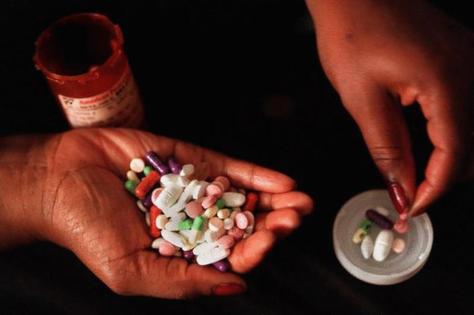A $60 million Miami and Palm Beach fraud involved adulterated HIV drugs
Published in News & Features
MIAMI — Moving misbranded and adulterated HIV drugs from the black market to retail pharmacies and HIV patients was a $60 million business for a Delray Beach man, the company he ran out of his apartment and the Miami company he partially owned.
Adam Brosius, 60, admitted this when pleading guilty in Miami federal court Friday, April 18, to conspiracy to commit wire fraud. He will be sentenced Aug. 29.
Brosius’ admission claims he, through his companies Worldwide Pharma Sales Group, and Safe Chain Solutions, worked a fraud from September 2020 through August 2021. Safe Chain is now run by president Charles Boyd and managing partner Patrick Boyd.
“In several instances, Brosius, Patrick Boyd, and Charles Boyd sold and distributed bottles purporting to contain a specific prescription HIV drug but which actually contained a different drug entirely,” Brosius’ admission says. “For example, in or around August 2020, a pharmacy customer sent an email to Brosius, Patrick Boyd, and Charles Boyd that a bottle it purchased from Safe Chain and dispensed to a patient contained an anti-psychotic drug instead of the HIV drug listed on the bottle’s label.”
The Boyd brothers each face their own wire fraud and moving misbranded drugs charges in Miami federal court.
Black market HIV drugs in regular pharmacies
Brosius ran Worldwide Pharma out of his Delray Beach apartment. Safe Chain, a wholesale drug distributor, is based in Cambridge, Maryland, but had an office at a commercial building at 10800 Biscayne Blvd. in Miami-Dade.
“Worldwide Pharma Sales helped Safe Chain locate both suppliers of HIV drugs and pharmacy customers to purchase HIV drugs,” Brosius’ guilty plea says.
The suppliers Brosius found, his plea said, included the New York’s Boulevard 9229, LLC; Connecticut’s Gentek LLC; New Jersey’s Synergy Group Wholesalers, LLC; Texas’ Rapid’s Tex Whole Sales Corp.; and Southern California’s Omom Pharmaceuticals, Inc., “collectively the “Black-Market Suppliers.””
“One common method of prescription drug diversion involved acquiring the drugs illegally from individual patients for whom the prescription drugs had been prescribed and dispensed but intentionally not consumed,” the guilty plea describes. “These diverted drugs were then reintroduced into the wholesale marketplace with false documentation concealing their true source and eventually resold to individual customers by pharmacies, which also typically billed the drugs to federal and commercial health insurance programs.”
Once a drug leaves the regulated distribution chain, it’s unknown if the drug remained under proper storage, which means it’s unknown how it might be changed and how those alterations will affect a user. That’s why prescription drugs come with extensive product tracing information, each drug’s “T3s” or “pedigrees.”
Despite paying deeply discounted rates, Brosius and the Boyds, Brosius’ guilty plea said, paid over $60 million to the “Black Market Suppliers” for diverted prescription drugs with falsified T3/pedigree information, and sold those same drugs to pharmacies. The two pharmacies listed in the indictment weren’t identified other than being in Miami Beach.
Awareness of the company owners’ illegal drug dealings didn’t extend all the way down to Safe Chain employees.
Patrick Boyd, the guilty plea says, got an email from a Safe Chain compliance worker saying she couldn’t verify some T3/pedigrees from Boulevard. Boyd forwarded this to Brosius with, “I’m on this Acumatica call but we need to get with boulevard (sic) soon. We’ve had two bad returns with opened bottles and broken pills last two days and the below sounds pretty bad...”
The next day, a Safe Chain compliance worker confirmed a Boulevard pedigree was faked. That didn’t matter, Brosius admitted. Brosius and the Boyds kept buying from the “Black Market Suppliers” and used the fake information to make the drugs look legitimately acquired.
In October 2020, one pharmacy emailed that prescription drugs were in ““suspicious packaging” and were “not usable for us” because they did not meet safety standards and may present a risk for our patients.””
The case was prosecuted by Assistant U.S. Attorney Alexander Thor Pogozelski and Trial Attorney Jacqueline DerOvanesian.
©2025 Miami Herald. Visit at miamiherald.com. Distributed by Tribune Content Agency, LLC.







Comments